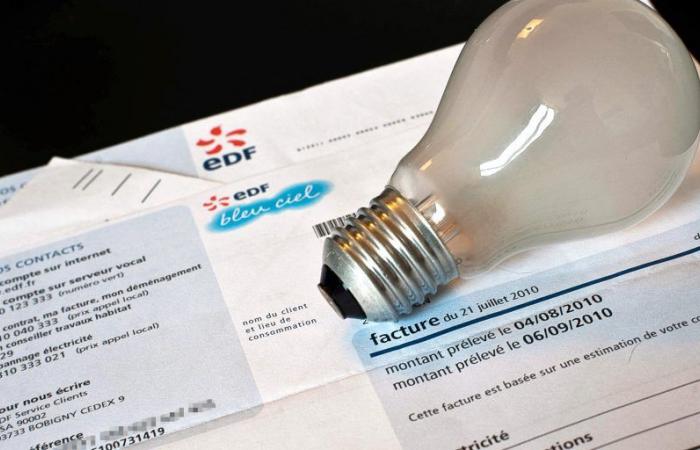Estimated monthly payments, calculation of price changes, information on consumption: the Energy Regulatory Commission (CRE) published on Tuesday the list of eight gas and electricity suppliers who, according to the regulator, refused to join publicly to principles of transparency.
“Name and shame” strategy
On July 11, the energy policeman published thirteen “guidelines” for suppliers, aimed at “strengthening consumer confidence, in a context of emerging from the energy price crisis”. Result, “almost all energy suppliers undertake to respect 13 good practices of transparency and readability of their offers for better protection of electricity and natural gas consumers”, indicated Tuesday the gendarme of the energy in a press release.
“There are 24 national suppliers and more than 50 local suppliers, representing more than 99% of residential consumers (the only ones concerned initially) (…) who have formally confirmed their commitment,” welcomed the CRE. Suppliers had until September 30 to notify CRE of their “firm commitment”. After this date, the independent administrative authority indicated that it would publish the names of those involved in the process, and of those who did not subscribe to it.
As expected, the energy policeman used the “name and shame” strategy by publishing the list of others, who “clearly decided not to adhere to it”, despite reminders, explained a CRE spokesperson. These are the suppliers Dyneff, Enercoop, Energies d’ici, GEG energy sources, MyLightSystems, Papernest Energie, Sagitterre (at Switch) and Wekiwi. They are “invited” to join their voluntarily engaged competitors “at any time”.
Allow “greater transparency”
The thirteen guidelines published by the CRE concern residential consumer contracts, market offers or regulated electricity sales tariffs (TRVE). They will “in particular facilitate comparison between offers and allow greater transparency on their price”, according to the CRE. The consumer will also be able to “better anticipate the amount of their bill”.
“If you have a price increase during the contract, you will have an alert to tell you be careful, the prices are rising and therefore it will not be radio silence with then a significant regularization”, explained Emmanuelle Wargon, president of the CRE on RTL. The CRE specifies that it “will monitor the proper execution of these commitments”, including by resorting to the fraud prevention services (DGCCRF) if suppliers do not respect the commitments to which they have subscribed.
But to be imposed “on all stakeholders”, these measures will ultimately have to be integrated into a “legislative framework”. “Ultimately the law must make this obligatory,” declared Emmanuelle Wargon.






